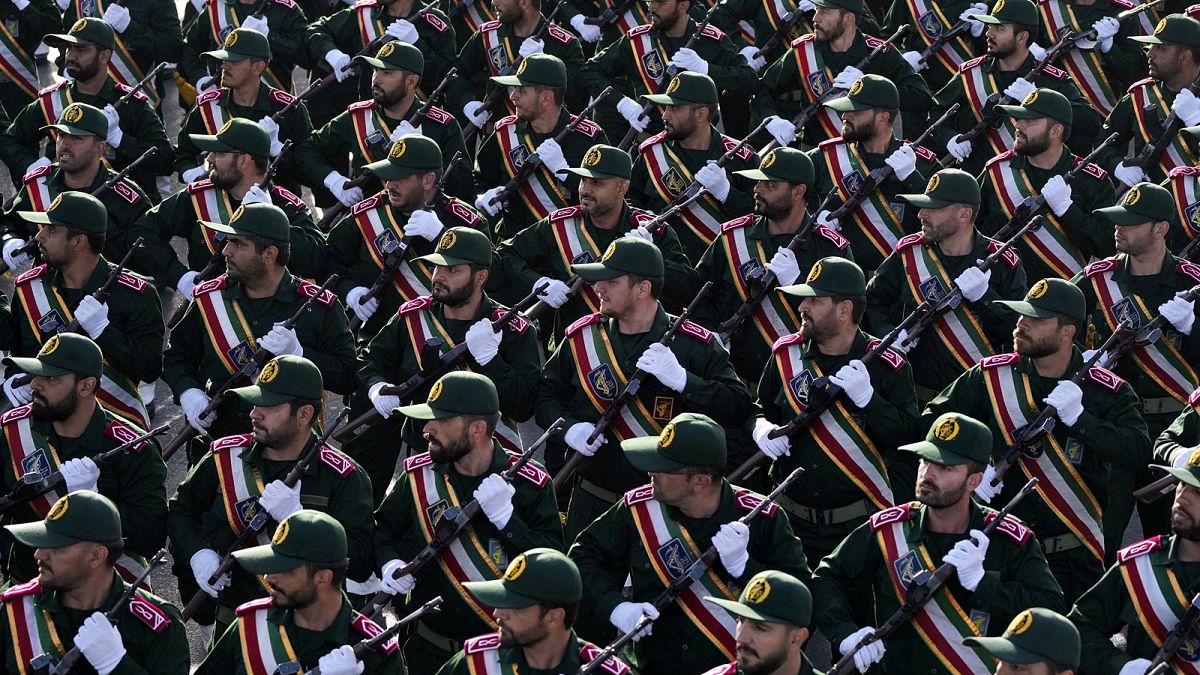The European Union has found the legal basis to designate Iran’s Islamic Revolutionary Guard Corps (IRGC) as a terrorist organization after a ruling by the Düsseldorf Higher Regional Court linked the IRGC to an attack against a synagogue in Germany. The IRGC has been accused of various activities such as crackdowns on protesters, transferring arms, and launching missiles, as well as supporting militias in the Middle East. Adding a new entity to the EU’s terrorist list requires a judicial decision by one of the 27 member states, and the Düsseldorf ruling has provided a sufficient legal basis for the designation. The proposal for designation has now moved to discussions among member states, with final approval requiring unanimity.
The IRGC was established after the 1979 Iranian revolution to protect the Islamic system from internal and external threats. It operates independently from the country’s regular army and has expanded its ranks, political influence, and economic power over the years. The IRGC consists of five branches, including ground forces, air force, navy, Basij militia, and the Quds Force, an intelligence service that supports armed groups in other countries. Some groups tied to the IRGC include Hezbollah, Hamas, and the Houthi rebels. The IRGC is estimated to have around 125,000 troops and is considered one of the most powerful paramilitary organizations in the Middle East.
The decision to designate the IRGC as a terrorist organization has political implications, as it involves declaring an important part of a state’s army as a terrorist entity. The designation would not have practical consequences as the IRGC is already subject to extensive EU sanctions. The proposal for designation has received support from countries like Germany, France, and the Netherlands, as well as from European Commission President Ursula von der Leyen and the European Parliament. The US and Canada, both G7 allies, currently apply the designation, highlighting the international concern regarding the IRGC’s activities.
The next stage in the process involves discussions among EU member states, with final approval requiring unanimity. The decision will depend on the political will of member states, and it is unclear when the designation will be officially approved. While some member states have expressed support for the designation, it only takes one country to block the decision. The IRGC’s involvement in various activities across the Middle East has raised concerns internationally, prompting the EU to consider designating it as a terrorist organization.
Overall, the decision to designate the IRGC as a terrorist organization marks a significant development in the EU’s approach to combating terrorism and addressing threats in the Middle East. The legal basis provided by the Düsseldorf ruling has set the stage for discussions among member states, with final approval requiring unanimous support. The IRGC’s activities have long been a cause for concern, and the designation would serve as a formal recognition of the organization’s role in supporting armed groups and destabilizing the region. As the proposal moves forward, the international community will be watching closely to see how member states navigate the decision-making process and address the political implications of designating the IRGC as a terrorist entity.








